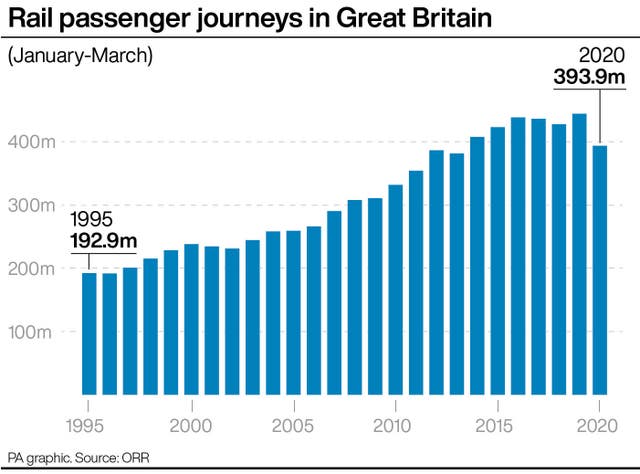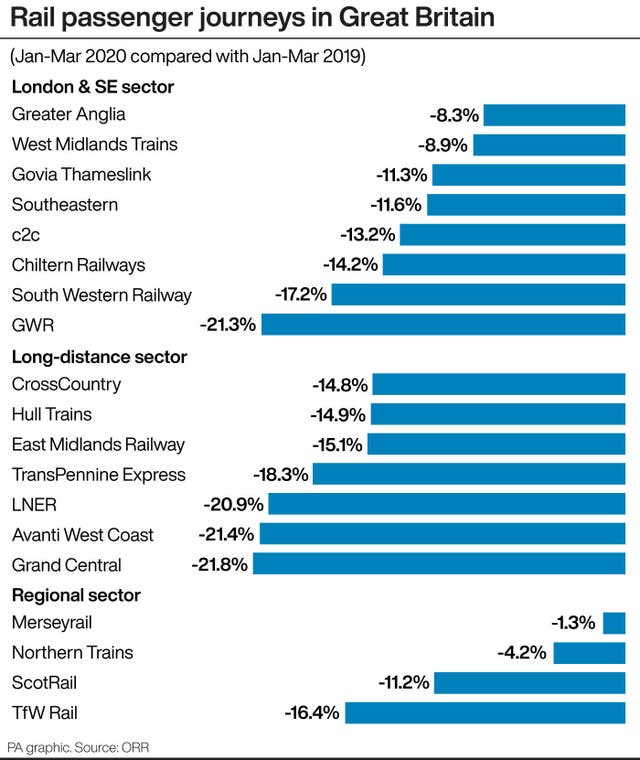Decline in rail journeys ‘unprecedented’
The number of trips made on Britain’s network fell by 51 million in the course of a year.

Rail passenger journeys declined by 11.4% in the first three months of the year, compared with the same period in 2019, due to the coronavirus lockdown, new figures show.
The Office of Rail and Road (ORR) said the number of trips made on Britain’s rail network fell by an “unprecedented” 51 million to 394 million.
This is the largest quarterly fall on record.
Passengers were advised by the Government to avoid unnecessary travel on March 16, with “stay at home” guidance issued a week later.
ORR director of railway planning and performance Graham Richards said the reduction in journeys can be “attributed almost entirely” to passengers avoiding non-essential travel.

The Department for Transport is financially supporting franchised rail operators to keep services running, despite the sharp drop in revenue from fares.
Rail services were ramped up in mid-May from about 50% of the standard timetable to 70%, to reflect coronavirus travel restrictions being relaxed.
In a bid to enable social distancing, train capacities have been reduced to as little as 10% of normal levels, and passengers continue to be advised not to use public transport if possible.
Rail minister Chris Heaton-Harris said: “This unprecedented fall in usage, not seen on our railways in more than 25 years, shows the dedication of the British public in rightly following the Government guidance to stay at home and protect the NHS as the virus took hold in March.
“Our absolute focus right now is on working with industry to restore normal service levels to provide more space for social distancing, as well as to deliver increased reliability as we build out of Covid-19.

“Whilst we are increasing rail services, social distancing means capacity is significantly reduced so I urge people to work from home if they can, stagger their travel times to avoid crowds, and use other forms of transport wherever possible.”
Rail, Maritime and Transport union (RMT) general secretary Mick Cash said: “These figures confirm we will need a new national plan for rail recovery which encourages passengers to return to our railways when it is safer to do so.
“That plan will need to be based on increased investment, more reliable and frequent journeys, affordable fares and protecting rail jobs and skills.
“The privatised railway has already shown it is not capable of delivering these objectives, and to safeguard a better future for rail, the Government needs to ditch its ideological objection to public ownership.”





